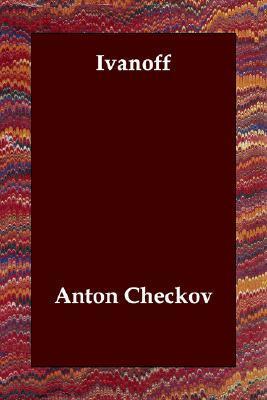ACT IV — Ivanoff
byACT IV — Ivanoff opens in a room prepared for celebration, yet the air feels anything but festive. Lvoff stands alone in moral agitation, convinced that Ivanoff is nothing more than a manipulator of hearts and fortunes. His frustration boils over as he voices his intent to expose Ivanoff for using women as means to personal advancement. The seriousness of his claim is quickly undercut when Kosich bursts in with a story about cards, revealing the comic absurdity that often surrounds personal tragedy. This abrupt shift between tension and triviality reflects the emotional dissonance at the heart of the play. People are gathered for a wedding, but the weight of suspicion, guilt, and broken ideals looms heavier than the joy of union.
The moment shifts to light chatter, yet the tension refuses to dissolve. Lvoff remains disgusted by the festive atmosphere, unable to reconcile the occasion with what he perceives as betrayal. His view of Ivanoff as a cynical manipulator casts a long shadow over the coming ceremony. When Martha arrives, dressed to the nines and clearly seeking admiration, her presence briefly adds comic relief. Yet, her exaggerated behavior and the reaction it provokes only deepen the undercurrent of discomfort. Beneath the surface lies a community unsure how to reconcile appearance with truth. It’s a celebration dressed in suspicion, where masks of joy can barely hide the cracks beneath.
Sasha’s conversation with her father pierces the superficiality, grounding the act in emotional honesty. She refuses to treat marriage as a financial agreement, pushing back against her father’s calculation of what love and loyalty should cost. Her voice rises not in rebellion but in refusal to compromise on what she believes marriage should be—a union of hearts, not wallets. Lebedieff, bound by experience and pragmatism, struggles to understand her conviction. This clash reveals more than just generational tension—it lays bare the difficult choices faced when ideals meet reality. Their debate frames the act’s emotional stakes, as Sasha refuses to yield her trust in Ivanoff despite everything said about him.
Ivanoff enters, visibly tormented, and the emotional weight of the scene deepens. No longer the charming cynic of earlier acts, he now reveals a man hollowed by despair and lost dreams. His words reflect a bitter awareness of his decline, not only in spirit but in purpose. He warns Sasha against marrying him, claiming to be empty and unworthy. Yet Sasha, refusing to be moved by his self-loathing, insists that love is enough. Her devotion stands in stark contrast to the doubt surrounding them. She sees not a fallen man but someone still worth saving, and it is this vision that anchors her resolve.
Lvoff’s interruption reignites the tension with a sharp public condemnation, calling Ivanoff a fraud. His words strike like flint, sparking chaos among the guests. Rather than resolving conflict, his accusation fractures the room further, polarizing everyone. Ivanoff does not fight back with anger but responds with quiet devastation. The moment marks a turning point—where truth and slander intermingle, and no one is sure who stands on solid ground. Lvoff’s righteousness becomes suspect, his timing more cruel than constructive. He believes he’s defending justice, yet ends up stoking humiliation instead.
Through it all, Sasha remains firm, confronting Lvoff with a blend of scorn and sorrow. Her refusal to denounce Ivanoff, despite the public shaming, brings a quiet power to the scene. She stands not for naivety but for belief in redemption, even when it is painful. In her, we see the paradox of love—how it can see clearly and still choose to stay. Her loyalty becomes a final act of defiance, not against truth, but against judgment made without compassion. Ivanoff, broken yet not entirely abandoned, exits not as a villain, but as a man caught in the tug between his past and the hope Sasha still holds.
This act lays bare the contradictions of human relationships—how love can persist in the face of disgrace, and how judgment can sometimes wound more than heal. Ivanoff is not a simple figure of deceit, but a man overwhelmed by the weight of expectation and his own failures. Through Lvoff, we see the cost of moral rigidity. Through Sasha, we glimpse a love that defies logic but resonates with emotional truth. The celebration never becomes true festivity, but in its unraveling, the act reveals something more lasting than ceremony—a raw and honest portrait of human complexity.


